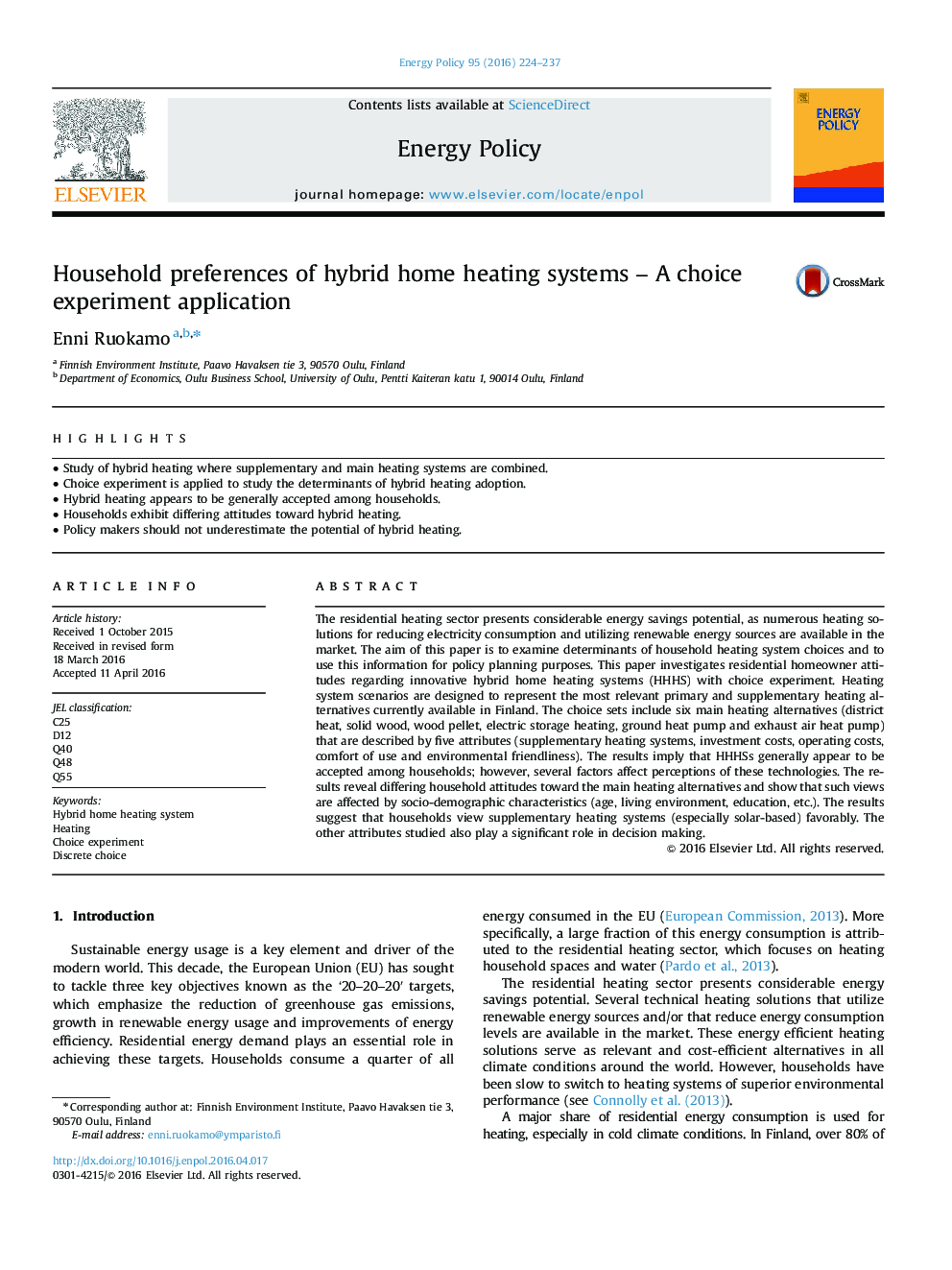| Article ID | Journal | Published Year | Pages | File Type |
|---|---|---|---|---|
| 7399250 | Energy Policy | 2016 | 14 Pages |
Abstract
The residential heating sector presents considerable energy savings potential, as numerous heating solutions for reducing electricity consumption and utilizing renewable energy sources are available in the market. The aim of this paper is to examine determinants of household heating system choices and to use this information for policy planning purposes. This paper investigates residential homeowner attitudes regarding innovative hybrid home heating systems (HHHS) with choice experiment. Heating system scenarios are designed to represent the most relevant primary and supplementary heating alternatives currently available in Finland. The choice sets include six main heating alternatives (district heat, solid wood, wood pellet, electric storage heating, ground heat pump and exhaust air heat pump) that are described by five attributes (supplementary heating systems, investment costs, operating costs, comfort of use and environmental friendliness). The results imply that HHHSs generally appear to be accepted among households; however, several factors affect perceptions of these technologies. The results reveal differing household attitudes toward the main heating alternatives and show that such views are affected by socio-demographic characteristics (age, living environment, education, etc.). The results suggest that households view supplementary heating systems (especially solar-based) favorably. The other attributes studied also play a significant role in decision making.
Related Topics
Physical Sciences and Engineering
Energy
Energy Engineering and Power Technology
Authors
Enni Ruokamo,
